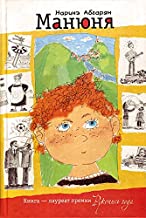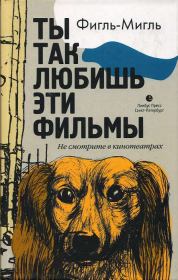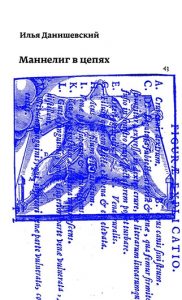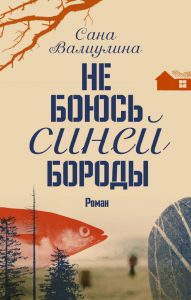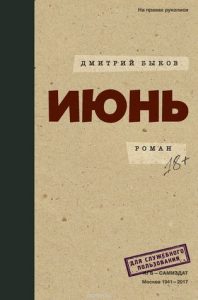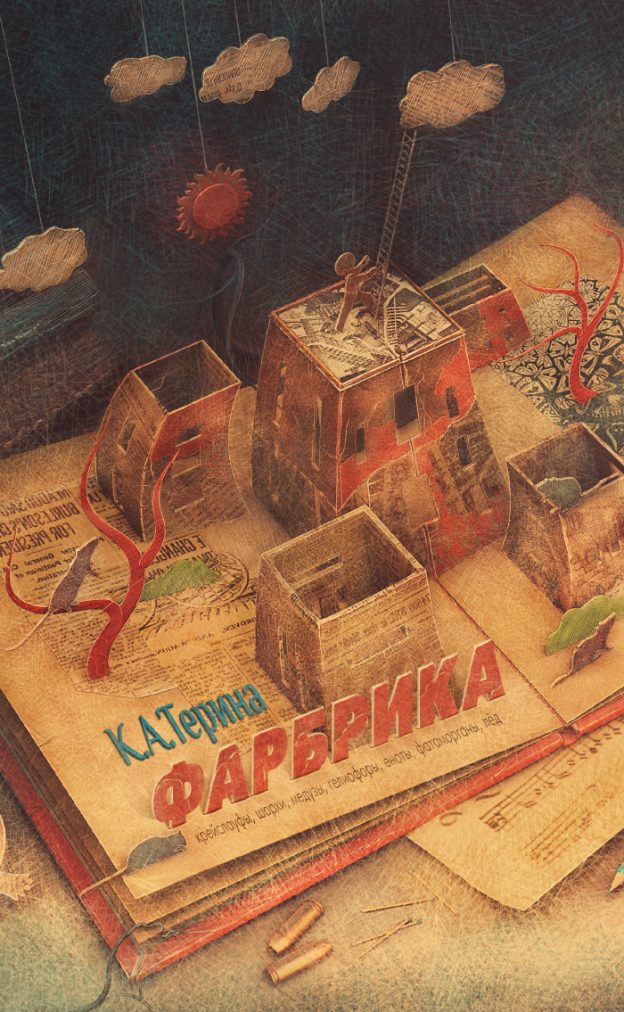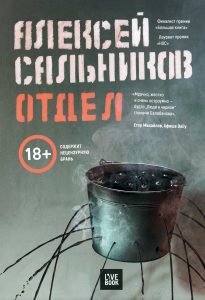
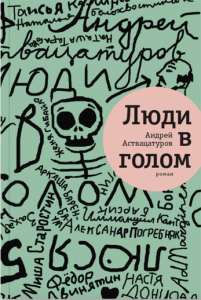
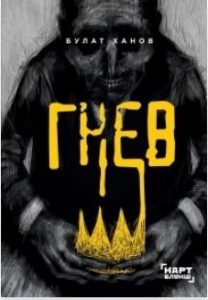
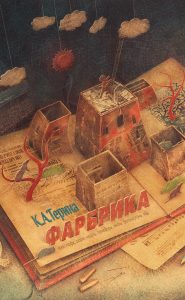
Read more below about the 12 translation projects the ERC-funded RusTrans project, based at the University of Exeter, is supporting. Each project is a work of prose fiction translated from the original Russian of a contemporary author. See here for translator bios.
William Barclay is translating Gnev (the Russian word for extreme anger) by Bulat Khanov. At 29, Khanov is one of the leading lights of a new generation of Russian authors, with two awards already for his shorter fiction and a long-listing in the Russian National Bestseller awards 2020 for his first novel Nepostoiannie velichiny (Inconstant Quantities, 2017). Gnev is a short but compelling and unsettling novel, and last year it was long-listed for Russia’s Big Book national literary award. Khanov depicts modern-day life in Russia while incorporating, with humour and satire, a host of universal themes such as alienation, lack of fulfilment, sexual frustration, as well as the influence of social media in re-shaping all of our existences. Khanov’s central character, the intelligent, dissatisfied academic Gleb, grapples with these issues, his unhappy marriage and the clash between his own inner world and the real one outside. By serving not only as a critique of academia but also by addressing the universally shared concerns of human existence (job dissatisfaction, marriage, parenthood, everyday banality), Gnev has a broad appeal for international audiences. You can read an entertaining English-language review of Gnev here.

Bulat Khanov
Michele Berdy is translating short stories and a novella by Russian-Israeli author Tasha Karlyuka. Karlyuka has written several dozen short stories ranging in length from a few pages to more than 20, written in the first or third person about (or by) “little people,” outcasts, people who are wounded emotionally or physically. Karlyuka has an eye for the paradoxical, sympathy for outsiders and anyone struggling, and an underlying warm humour that can burst into comedy or fantasy. Her stories are placed in the Soviet past of Ukraine or Russia or in today’s Israel. She writes about émigrés, but not only émigré life. Her characters are recognizable but unique, and the stories have a tight dramatic construction (it is not surprising that she also writes screenplays). Michele writes, “For several years I have been reading works by women writers who were born and spent part or all of their childhoods in the Soviet Union just before it collapsed and in the former Soviet republics in the first decades of the post-Soviet era. Some

Tasha Karlyuka
stayed in Russia, such as Guzel Yakhina, Alisa Ganieva, Marina Stepnov, Yevgeniya Nekrasova and Anna Kozlova; others emigrated, usually with the families when they were young. In the U.S. writers Olga Zilberbourg and Olga Grushin among many others, write in English but have been influenced, to a greater or lesser degree, by their Soviet childhoods and Russian literary traditions. In Israel Alisa Bialsky, Anna Liktimann and Tasha Karlyuka write in Russian, and reflect the influence of their childhoods — in part, the experience of being different — as well as the Jewish, international, religious country they now call home.Tasha Karlyuka stands out in this varied and illustrious group, in part because she is funny — and comedic writers are a rarity — but also because she is focused on relationships in a way that is both familiar and foreign. She shines her light on the comedy, pain, and (sometimes) redemptive love between parents and children (“Touch,” “Men Are So Fragile”); husbands and wives, lovers (“Alzheimer’s,” “Weak Man, Strong Woman,” “Sweater”); big multi-generational, multi-national, and sometimes multi-religious families (“Chicken Morning, Noon and Night,” “Being Frosya Shneerson”); and between people who don’t fit in and the people who aren’t welcoming them (“My Black Skin,” “Kosher Swimsuit”). Their tone and sensibility is sometimes reminiscent of works of American Jewish fiction, such as early works by Phillip Roth, with their affection and exasperation for family life and an unabashed enjoyment of the pleasures of good food and good sex — only flipped, written by a woman with a great interest in human psychology. For all these reasons, I think Karlyuka’s prose will resonate with English-speaking readers.” You can read Michele’s translation of Karlyuka’s story “Chicken Morning, Noon, and Night” here.

Dmitry Bykov
Huw Davies is planning to translate Dmitrii Bykov’s historical novel June (Июнь, 2017). Despite his notoriety in Russia as a journalist, novelist, essayist, and liberal-minded public intellectual, very few of Bykov’s novels have been translated into English (with the notable exception of Cathy Porter’s version of his ЖД (2006) as Living Souls in 2010 for Alma Books. Bykov’s biography of Boris Pasternak (called simply Boris Pasternak) won him the National Bestseller and Big Book awards in 2006. The novel June has sold 43,000 copies to date and claimed third place in Russia’s prestigious Big Book Prize in 2018. Bykov says of June that, although it is not directly about him, it contains more painful truths about him than any of his other works; he has also said that it may be a painful novel for many Russian readers, as it undertakes the painful but necessary task of looking at certain sores that exist in society. Critics have called it his best novel to date. Huw writes, “I think it would be very interesting to translate because it contains three different stories, each of which reaches a climax in the month of June 1941, when we know that the invasion of the Soviet Union by Nazi Germany will surely begin.”

Nadezhda Chernova
Shelley Fairweather-Vega writes that she plans to translate, from Russian, “two very non-Russian short stories, quite different from what most readers of English know of Russian literature in terms of style, subject matter, national origin and, generally, in attitude. These two stories were written by women from Kazakhstan (Nadezhda Chernova and Asel Omar) after Kazakh independence. Paradoxical as it may seem, I hope that promoting and publishing more translated work from Central Asia can inject some badly needed diversity into the body of Russian literature we know in the English-speaking world, even though Central Asian literature — at least, the best and most interesting specimens of it — is not Russian literature. Publishing more translations from places like Kazakhstan can serve to expand readers’ views of what literature in Russian can be, and attract the interest of new readers, as well. Kazakhstan is the largest country by landmass to emerge from the breakup of the Soviet Union aside from Russia itself, but it has had an undersized impact on world literature. Its rich oral storytelling tradition has so far gone largely unrecorded outside the Kazakh and Russian languages. Yet the very fact that storytelling has long been considered a matter for speech, not writing, combined with the cultural upheaval and real disasters of Russian and Soviet colonialism, has so far prevented any specifically, identifiably Kazakh body of literature from taking shape separate from the overbearing influence of Russian literature proper. Most of the Kazakh literature we do have in English (or any other language, for that matter) comes from poets and novelists working within the boundaries of Kazakh socialist realism during the Soviet era, and those works have never generated much interest from abroad. Nearly thirty years after independence, the late Soviet writers of Kazakhstan, with their sweeping national epics of hard-working, virtuous heroes, still retain their monopoly on public esteem and public resources. All other topics, and everything written in a less straightforward style, are viewed with suspicion by the official establishment.

Asel Omar
Furthermore, the twentieth-century history of Kazakhstan was traumatic enough, and its leadership has changed little enough, that writing about the country’s real history still risks violating taboos, and no consensus has emerged in the writing community about whether to discuss those difficult topics, or how. Authors writing about new themes or in new ways find it difficult to tap into the existing system of grants, awards, and publication that has remained largely unchanged since Soviet times and is still in the firm grasp of the government. Accessing this system is doubly difficult for women, who remain seriously underrepresented in Kazakhstan’s state-sponsored literary elite. That, in turn, affects their access to international publishers and translators who could bring them to the attention of the larger world. With translator and Kazakh literary cheerleader Zaure Batayeva, I am attempting to start the work of overcoming those obstacles with a collection of short stories by contemporary Kazakh women writers who persistently transgress the boundaries limiting them. The two of us had some initial success placing three long stories in a Kazakh women’s feature in Words Without Borders. Since then, we have been planning and beginning to promote an anthology of new women’s writing from Kazakhstan called Amanat, a Kazakh word meaning ‘sacred trust.’ As far as we have been able to determine, Amanat will be the first book-length collection of Kazakh women’s prose ever to appear in English. The overarching aim of this anthology is to expose the English-speaking world to a new kind of diversity in Russian literature, from a geographic and thematic realm that so far has been too little explored. Might non-Russian literature in Russian trigger new interest in Russian literature in translation? This proposal is one component of my personal mission to find out if that might be the case.”
Anne O. Fisher and Alex Karsavin are co-translating Ilya Danishevsky’s Mannelig v tsepyakh (Mannelig in Chains), published by Poryadok slov (Saint Petersburg), 2018. Ilya Danishevsky (b. 1990) studied at the Gorky Literary Institute in Moscow and at the History of Religion department of the Russian State University of the Humanities. In 2016 he was invited to the US by the PEN American Center as part of a writer’s delegation on free speech. He was editor-in-chief of the non-fiction “Times” (“Vremena”) imprint at AST and from 2015 to 2019 AST provided him his own imprint, “Anhedonia: Danishevsky’s Project” (“Angedonia. Prozhect Danishevskogo”). In 2017, Danishevsky was short-listed for the Andrey Bely Prize for Prose and the Arkady Dragomoshchenko Prize. Currently Danishevsky writes texts that blur the boundary between poetry and prose, produces regular literary features for the online edition of the Russian magazine Snob, and curates the literary program at Moscow’s Voznesensky Center. Danishevsky’s poetry, prose, essays, and interviews are widely published. His poems have been translated into English, Polish, Spanish, and Ukrainian. His two books are Tenderness for the Dead (Nezhnost’ k mertvym, 2014) and Mannelig in Chains (Mannelig v tsepiakh, 2018).

Ilya Danishevsky
Mannelig in Chains has been hailed by critics as a foundational text of queer modernism in the former Soviet Union, a movement that’s now coming of age. This emergent body of literature both centers queer narrators and formally reproduces the disorienting nature of their experience. Written in the harsh afterglow of Russia’s 2013 “gay propaganda” ban, Mannelig portrays the queer subject as something more alienated than a confessor of illicit desire. The narrator’s accounts of trysts and personal tragedies function as entry points into collective traumas. Fluid identity, the unstable nature of private and public spheres, the sensory overload of war turned spectacle—in Mannelig, all are reflected within a narrative strategy designed to induce vertigo. The story occurs as a series of narrative threads (individual chapters) including: erotic and platonic love; friendship; trust; childhood trauma; deaths of friends, siblings, and the dog; annexation (of both concrete geopolitical territories and abstract personal ones); and the commercialized, politicized deaths of Russian soldiers fighting in Ukraine. All this is overlaid onto a personal journey, which is itself tied to that archetypal journey narrative, the Odyssey. The book is, needless to say, a delightful challenge for the translators. Why Mannelig? According to a medieval legend, Mannelig was a knight who refused the love of a female troll, thus dooming her never to transform into a human woman. There are many layers to this image of the knight in chains. Lev Oborin, writing in Colta.ru, notes that Danishevsky’s purposeful blurring of form produces a text that “may not have thrown off its chains – the chains of ethics, of politics, of memory – but has become keenly aware of them.” Danishevsky’s usage of nested, cascading clauses shuttle the reader between pasts and presents that grow increasingly entangled. Equal parts telegraphic and elliptical, Mannelig merges the phantasmagorical personal with the stuff of byt. While the novel’s prose sections hybridize literary Russian with Western colloquialisms and pop culture references, the free verse sections do away with the strictures of genre entirely, presenting the reader with punctuation-free parataxis-laden outpourings of text. Temporal simultaneity, affective overload, and the dissolution between private/collective utterance are what transport Mannelig from the territory of queer bildungsroman, into a stranger and more pressing register.

Sana Valiulina
Polly Gannon is translating Sana Valiulina’s novel Ne Boius’ Sinei Borody (I’m Not Afraid of Bluebeard, 2017), was published in Russia in 2017. Sana Valiulina is an essayist and the author of four novels. Born in Tallinn, in Soviet Estonia, to Russian-speaking, ethnic Tatar parents, she studied Norwegian at Moscow State University before moving to Amsterdam in 1989. She received the Jan Hanlo Essay Price in 2017. She writes in both Dutch and Russian. I’m Not Afraid of Bluebeard was written originally in Russian, and then translated (by Valiulina herself) into Dutch. It was published in the Netherlands, to wide acclaim, as The Children of Brezhnev ). A longer autobiographical essay by Valiulina, and also translated by Polly, recently appeared in Granta. The novel I’m Not Afraid of Bluebeard, set primarily in Soviet-era Estonia but at different points in history, revolves around the generation that was born and grew up in the Brezhnev-era Soviet Union, during the so-called Stagnation Period. Consisting of four chronologically ordered parts, the novel paints a portrait of a generation of ‘children of Brezhnev’. Each separate part is a story in its own right, but they are linked by a number of ‘continuous’ characters who appear throughout the book – though not always in the same guise – providing the text with an inner structure that holds the novel together.
Lisa C. Hayden is translating Alexei Salnikov’s Otdel (The Department, 2015). Alexei Salnikov was born in Estonia (1978) and grew up in the Urals, where he currently lives. The Department was Salnikov’s first novel but he first received widespread notice for Petrovy v grippe i vokrug nego (The Petrovs In and Around the Flu). Among other honours, The Petrovs won the National Bestseller Award and the NOS Award critics’ prize, both in 2018. Salnikov’s Oposredovanno (Indirectly) was a Big Book Award finalist in 2019. Salnikov also writes poetry. Lisa tells us:

Alexei Salnikov
“The Department combines humor, absurdity, horror, and slow-building suspense as it tells the story of a man named Igor who finds a job in a sketchy office many months after being fired from his administrative job at a police station. The power of The Department lies in the very ordinariness of its quirky, flawed characters, people with significant blots on their employment records: the department’s team goes to work, follows orders, and takes days off after killings. Reports are even written. Throughout the book, Salnikov forces the reader to contemplate how they would act if they worked at the department. His twists on reality, absurdity, and senseless violence are all the scarier thanks to his dark humor and the references to familiar aspects of contemporary life and culture (there are mentions of figures ranging from Ostap Bender to James Bond to Pussy Riot) that he weaves into the novel. Although The Petrovs In and Around the Flu is Salnikov’s best-known novel to date and was warmly welcomed by critics, I chose The Department because I believe it’s the best book for entering and discovering Salnikov’s unusual world. All three of Salnikov’s novels are darkly funny, featuring odd variations on the world we know, but The Department’s linear structure, clear plot, suspense, and heavy dose of very dark humor make the novel an ideal starting point. The characters (whose personal situations and flaws differ greatly) also lend a strange appeal, particularly given their workplace camaraderie. Perhaps even more important, from the business perspective, I think The Department fits squarely with what I see as a growing interest in speculative, odd fiction that explores and exposes occult (in the sense of “hidden”) elements of society and people. In my reading, The Department is a nerve-racking psychological novel about those mysteries.” See here for an extended synopsis of the plot.
Alex Shvartsman is translating K.A.Teryna (pseudonym of Kateryna Bachilo) , an award-winning author and illustrator. A number of her stories have been published in Russian SF magazines such as Esli (If), Mir Fantastiki (World of Fantasy), since 2008. English translations of her stories have appeared in Apex, Strange Horizons, Samovar, Podcastle, and the Sunspot Jungle anthology. She lives in Moscow.
Alex writes that, “Teryna is among the finest authors writing today, who are at the avant-garde of reinventing and reinvigorating Russian speculative fiction. Her writing is consistently excellent (as evidenced by their publication in international venues; few Russian speculative authors have had their short stories as widely available in English), her ideas fresh and interesting. I believe speculative genre as a whole would benefit from more of her work becoming available to international readers.” You can read Alex’s translation of a previous story by Teryna, Black Hole Heart, here in Apex magazine.
Isaac Sligh and Viktoria Malik are co-translating Viktor Pelevin’s iPhuck 10 (2017). They feel that “the state of Pelevin’s translation into English is at an impasse. Until the early 2010s,
his novels all saw releases with major publishing houses in the West — Omon-Ra (New Directions, 1994), Generation P (Faber & Faber, 1999), and The Clay Machine Gun / Buddha’s Little Finger (Faber & Faber/Penguin, 2001), to name just a few. Pelevin’s recent novels, including his most significant as of late, the provocatively titled iPhuck 10 , have yet to receive English translations. We believe that iPhuck 10 is the major Russian novel of the 2010s awaiting translation at this moment. The title might seem like a crass pun, but it is actually the very embodiment of the book’s subject: the strange, murky nexus we face in modern times between artificial intelligence, corporate greed, algorithms, virtual reality, and our own physical and personal interactions. Hence a pun on the expletive and Apple’s device, the most famous and ubiquitous example of corporate, high tech penetration into our daily lives. One of the most compelling aspects of the book is the fact that Pelevin has hit upon a truly revolutionary narrative voice for his protagonist: a Machiavellian, egotistical, suave AI algorithm named Porfiry Petrovich, a narrator who exists only in the binary ether, a “spirit” as he calls himself. Porfiry announces himself with an opening monologue, which brings to mind the voices of Dostoevsky’s Underground Man, Zamyatin’s D-503, and many other famous narrators of Russian literature past.” Isaac feels that Viktor Pelevin has always pushed boundaries with his novels, both in terms of literary style and his dissection of modern ideologies. Pelevin finds a way to hit on subjects no one else is comfortable discussing, confronting them head on while making us laugh at the same time, a difficult balancing act to pull off; he does so as spectacularly as ever with iPhuck 10. Viktoria believes that iPhuck 10 deserves translation for English audiences not only because it shares Pelevin’s perspectives on modern Russia and the world, but also because it hints at an entertaining yet disturbing truth about our present and, possibly, our future.
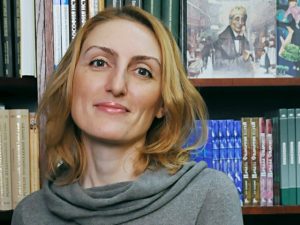
Narine Abgaryan
Sian Valvis is translating Narine Abgaryan, a Russian writer of Armenian origin. Born in 1971, Abgaryan grew up in the Armenian town of Berd – the setting of her autobiographical novel, Manunia, which Sian plans to translate. Now based in Moscow, Abgaryan is already a well-known author and blogger in Russian-speaking countries. For Manunia (2010), Narine Abgaryan was long-listed for the Russian Big Book award. In 2016, she won Russia’s most prestigious literary award, the Yasnaya Polyana Prize for Three Apples Fell From The Sky (2015), which has sold more than 160,000 copies since it was first published. Abgaryan is now gaining recognition for her work outside of the Russian speaking world: ‘Three Apples Fell From The Sky was published in English by Oneworld), in Lisa C. Hayden’s PEN Award-winning translation. Abgaryan’s work has already been translated into 13 languages.
As Abgaryan’s first major work, Manunia is the first book in a trilogy and has enjoyed considerable commercial success in Russian-speaking countries. The book is a series of autobiographical anecdotes, retold with uplifting humour. This novel, an easy read for adult readers, would also be particularly suitable for the young adult market. It tells the story of two little girls, best friends Nara and Manunia, their terrifying but good-hearted grandmother Ba, and the many hair-raising adventures that befall their extended family in a small Armenian town.
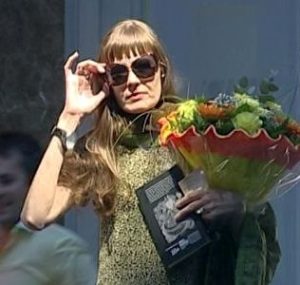
Figgle-Miggle
Sarah Vitali is translating Figgle-Miggle’s You Love These Films So Much (Ty tak liubish’ eti fil’my, 2011). She writes: “When Figgle-Miggle first emerged on the Russian literary scene in 2010, almost nothing was known about the author behind the funny-sounding pseudonym. Since then, this reclusive writer (real name, Ekaterina Chebotaryova) has become a fixture of the long- and short-lists of various Russian literary prizes, winning the prestigious National Bestseller in 2013. A gifted satirist with a taste for the absurd, Figgle-Miggle has been compared to Viktor Pelevin, Nikolai Gogol, and Jonathan Swift. You Love These Films So Much is a novel as mysterious and captivating as the woman who wrote it. Funny, morbid, and unpredictable, the story evokes a wide range of human (and non-human) experience: it is told from the points of view of various characters, including a lapdog, a junkie, and a secret agent. The book constantly raises questions about identity, perspective, and narrative reliability, all while offering up a biting satire of contemporary Russian society. Though Figgle-Miggle has been an established name in contemporary Russian literature for nearly a decade, her work has not yet been translated into English. Figgle-Miggle’s talent for weaving together different worldviews, as well as her own personal project of self-fashioning, would make her a compelling addition to the list of contemporary Russian women authors emerging in translating, including Guzel’ Yakhina, Narine Abgaryan, and Alisa Ganieva. Of the six novels she has published to date, the action-packed and entertaining You Love These Films So Much would be the ideal candidate to introduce Figgle-Miggle to an English-language audience.” The book’s unusual title cites the song Filmy (Films) by Russian rock musician Viktor Tsoi.
Lucy Webster is translating Andrei Astvatsaturov (born in Leningrad in 1969), now a household name in contemporary Russian fiction, and she tells us about him below.
“A specialist in American and British literature, Astvatsaturov is currently working as a professor in the history of foreign literature at St Petersburg State University, as well as the head of the Literature Programme at the Smolny Institute. Besides this, he holds an annual ‘Literature Workshop’ for aspiring writers together with his colleague Dmitry Orekhov. There are multiple reasons for bringing Astvatsaturov’s work to the English-speaking world. On a basic level, the large amount of success and popularity that this author has enjoyed in Russia over the last decade has caused him to be ranked among Russia’s best contemporary writers such as Elena Chizhova, Tatiana Tolstaia, and Roman Senchin. The charm of Astvatsaturov’s writing comes from his development of a unique narrative voice, which manages to engage the reader in the protagonist’s musings about the human condition and modern Russian society in a very clever and unassuming way. Such thoughts are explored through amusing anecdotes about Astvatsaturov’s life and his extraordinary encounters with various characters, which disguise rather striking philosophical statements with sharp wit and irony. When reading Astvatsaturov’s prose, particularly his delivery of short, deadpan conclusions to relatively serious stories, one thinks of American writers like Kurt Vonnegut or J.D. Salinger.

Andrei Astvatsaturov
This is, undoubtedly, the result of the author’s study of American literature. He sees himself as writing in the ‘American tradition’, making a conscious attempt to move away from the use of long character monologues to make a meaningful, philosophical point. At this juncture in relations between the West and Russia, it is important to remember that cultural ties between these two areas are much stronger than political conflicts, and Astvatsaturov’s prose presents a perfect example of this. Furthermore, the form that this author has chosen, that is, collections of seemingly separate tales from different chapters of his life, has contributed to the creation of a new genre in contemporary Russian literature: ‘blog literature’. All of these factors make Andrei Astvatsaturov’s writing a refreshing read, as well as an entertaining introduction to what contemporary Russian literature has to offer to new readers.” Liudi v golom (People in Nude) is Andrei Astvatsaturov’s first novel, the first part of a trilogy of sorts. Astvatsaturov’s latest book, Ne Kormite I Ne Trogaite Pelikanov (Don’t Feed or Touch The Pelicans, 2019), a spoof detective novel set in London, was shortlisted for the Russian National Bestseller in 2020.